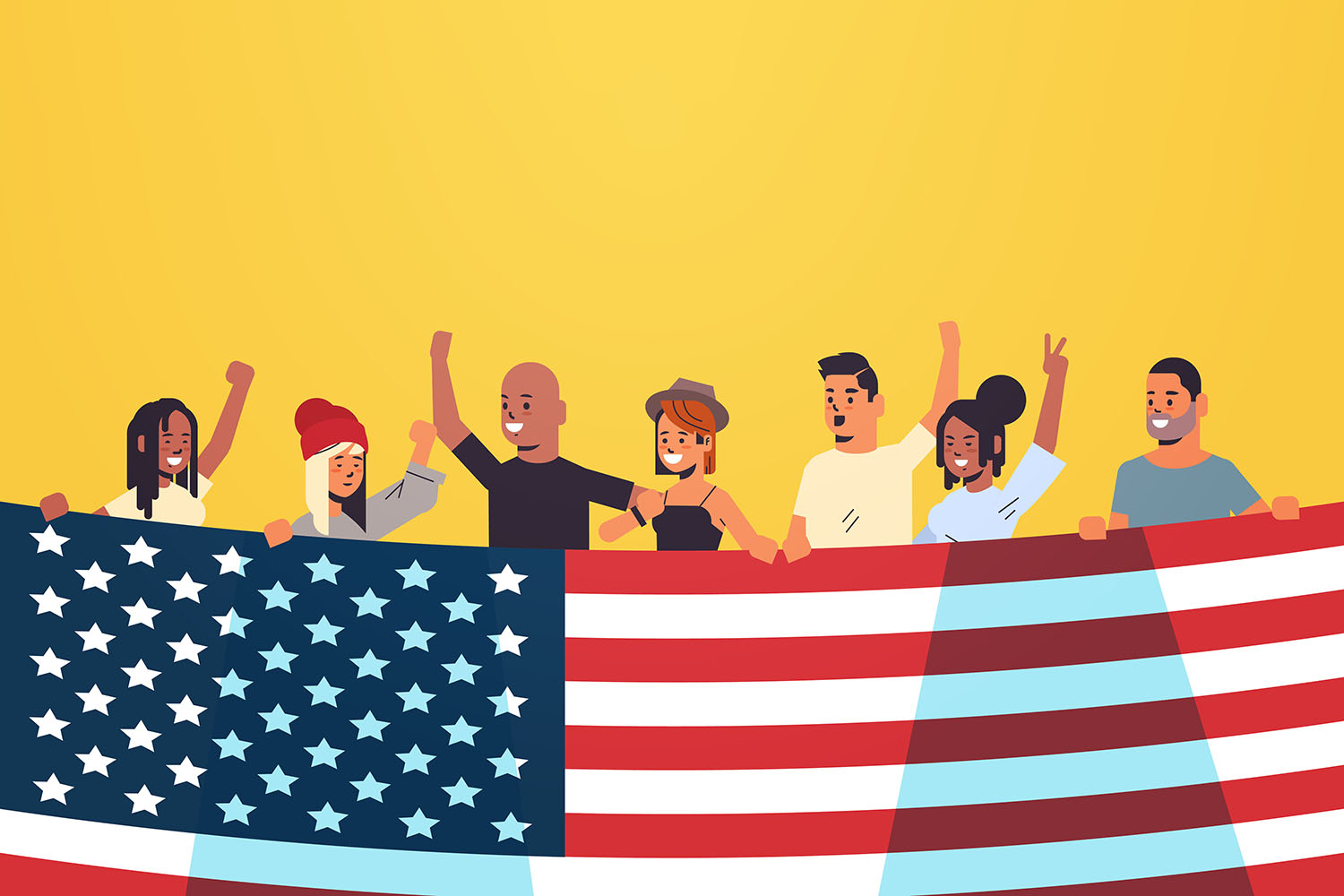The future of democracy rests on the civic bargain, Stanford scholar argues
Democracy is messy, says Josiah Ober in his new book. “Democratic citizens must live among and negotiate the terms of their common lives with others who hold diverging interests. That means deliberating with people with whom we disagree.”
When it comes to the future of American politics, Stanford political scientist Josiah Ober describes himself as “guardedly optimistic.”
While others may wallow in doom and gloom – open any newspaper and there are stories describing democracy’s imminent demise – Ober’s new book, The Civic Bargain: How Democracy Survives (Princeton University Press, 2023), takes a different approach, aiming to turn “current pessimism on its head.”
“Instead of inquiring into the causes of democracy’s death, we looked to history’s long survivors for clues to democracy’s emergence, evolution, and strategies for persistence,” Ober and his co-author Brook Manville write.
Here, Ober discusses what he and Manville say is essential for democracy’s survival: the civic bargain. Without it, democracy is just a lofty goal, they argue. Democracy is about deal-making and compromises, and the civic bargain lays the groundwork for that cooperation and collective self-governance to take place.
Ober also discusses some of the essential conditions for the civic bargain – particularly the importance of the Aristotelian concept of civic friendship – and why it’s important to stay hopeful amid crises that emerge.
Would you describe yourself as pessimistic or optimistic about the political future of America?
I am guardedly optimistic. I urge pessimists to look at the history of successful democracies – those we narrate in the central chapters of the book. They will learn that “it’s never been as bad as this” is simply wrong. Every successful democracy has weathered severe crises – internal and external. That does not mean that every crisis will be overcome – history also shows us many examples of democratic failure. But excessive pessimism is a self-fulfilling prophecy: Without hope for democratic renewal, why bother negotiating with those whose interests diverge from your own?
The current state of American democracy has been described in many ways – at risk, in crisis, under attack. How would you describe the current system of governance? And what, for you, is a useful way to think about democracy?
We prefer a basic definition: Democracy is collective self-governance by citizens – “No boss, except one another.” That means rejecting the rule of a ruling elite or dictator – no matter how benevolent they may be. It means citizens must take responsibility for their government. That responsibility may be exercised directly, as in ancient Athens, or through elected and accountable representatives. Self-government comes with substantial benefits, including rights of free expression and assembly. It assumes in-principle equality of political influence, expressed as one-person-one-vote. It implies an expectation that citizens will treat one another as dignified sharers in a common enterprise. But it also comes with costs: the effort it demands of citizens. Part of that effort is accepting both the reality of pluralistic interests and the importance of common goods. Democratic citizens must live among and negotiate the terms of their common lives with others who hold diverging interests. That means deliberating with people with whom we disagree. The current state of government in modern democracies is ailing in part because too many citizens have come to take benefits for granted and are unwilling to bear the costs.
You and your co-author, Brook Manville, argue that the civic bargain is essential for democracy’s survival. What is the civic bargain, and why is it important?
We view the civic bargain in two senses. First, it is a background culture – a set of norms, behaviors, and expectations that enable people with differing goals to work together to sustain essential common goods: to enable the level of cooperation necessary to sustain domestic peace and security against external threats; to build a robust economy capable of ensuring basic levels of welfare – food, shelter, health, and education. Next, the civic bargain is the set of formal rules that specify how decisions are made and how they are carried out. The rules determine who gets what in the distribution of goods. And who must give what to ensure that the distribution is fair enough to gain the support of a substantial majority while not infringing the basic rights of minorities. The civic bargain must be robust and stable enough to ensure that people can live in the expectation that they are acting within the established law. But the bargain must also be amendable in the face of changed circumstances. The U.S. Constitution, with its 27 amendments, is an example of the formal aspect of the civic bargain: imperfect, from its inception, but reflecting the best bargain that could be struck in the face of pluralistic interests. The civic bargain will always be seen as imperfect. But it also leaves people better off than they would be outside the bargain.
You list “civic friendship” as one of seven essential conditions to the civic bargain. Can you explain what this concept is?
We borrow the concept from Aristotle: Civic friendship does not mean liking one’s fellows, but it does mean recognizing that we are sharers in a common enterprise; civic friends are not enemies to be destroyed. It is transactional in that it acknowledges the need we have of one another, but it is also grounded in mutual respect for one another’s dignity: It means we ought not seek to humiliate or infantilize others. If that notion were internalized by politicians – and those who vote for them – the quality of American government would improve, and Americans would have a higher opinion of it.
What does compromise look like in a political culture that is highly partisan, where political parties take a zero-sum approach to conflict? How can win-win scenarios be achieved, without either party feeling like they are giving up on their principles?
We advocate de-escalating the moralization of politics (“my opponents are evil”); giving up the idea of consensus (“if they were reasonable, they would agree with us”); and abandoning zero-sum thinking (“we win, they lose”). We advocate, as an alternative, the analogy of a commercial exchange: When you want a widget, unless you are a criminal, you are unlikely to think, “If I win, I get my widget for free; the loser-seller gets nothing.” You may haggle over the price, but you both know that a deal requires that you both see yourselves as better off. This sounds transactional, and it is – the transaction works because of a background culture of cooperative behavior and formal rules.
What has led to democracies collapsing, and what can be learned from these historical examples?
Democracies have historically faced a challenge of scale. To compete with rival states, democracies must get bigger, which typically means expanding the citizen body. More well-motivated citizens, with diverse information and know-how, strengthens democracy and facilitates problem-solving. But more people with more diverse interests at “the bargaining table” makes it harder to negotiate mutually beneficial agreements. Successful democracies manage scale well by timely and thoughtful amendments to their civic bargains. Those that fail to adapt find themselves beset by civil conflict and vulnerable to autocratic rivals.
Ober is the Markos & Eleni Kounalakis Chair in Honor of Constantine Mitsotakis and a professor of political science and of classics in the School of Humanities and Sciences. He is also a senior fellow (by courtesy) at the Hoover Institution.



